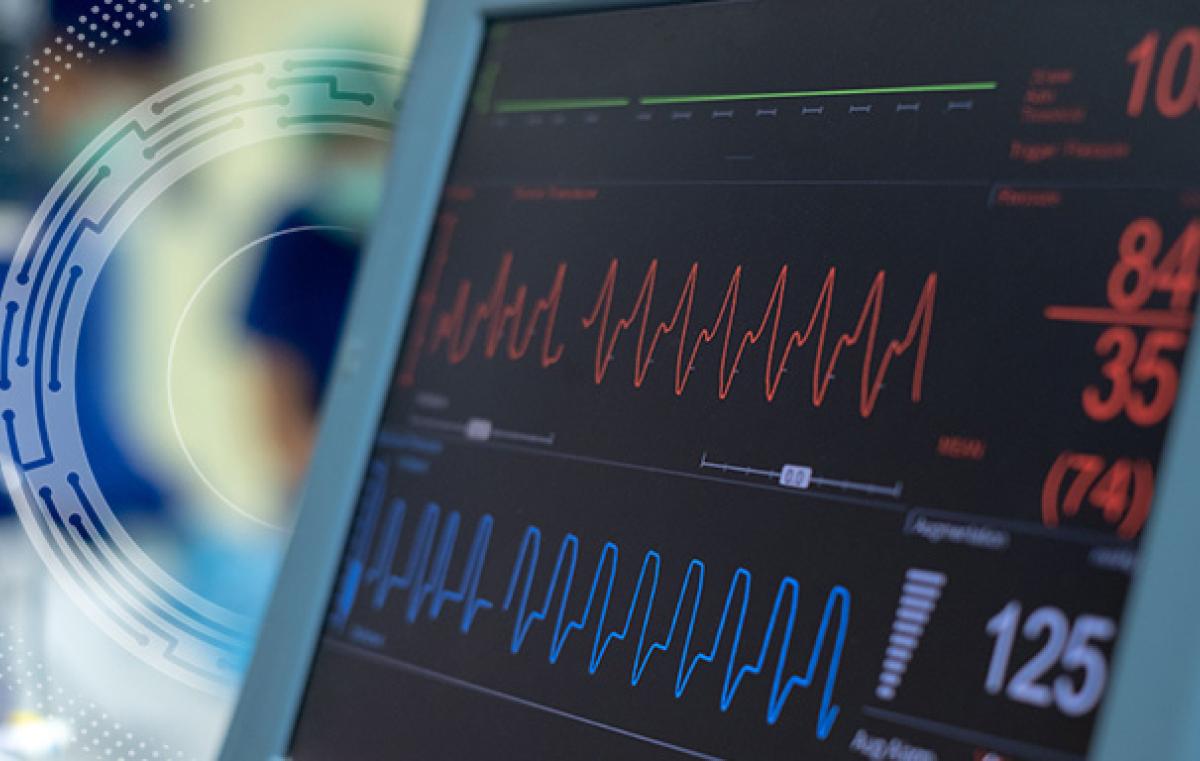Laser Sensors for Remote Monitoring of Pathological Conditions
Remote cardiopulmonary function tests will be available following Bar-Ilan’s research

Prof. Zeev Zalevsky from Bar-Ilan University’s Kofkin Faculty of Engineering has conducted groundbreaking research leading to the development of a product capable of remotely performing cardiopulmonary function tests. This innovative technology utilizes laser sensors and advanced image processing algorithms to detect a wide range of medical problems without any physical contact with the patient.
Imagine being in a closed room where a device, without requiring any action on your part, detects potential medical issues. This seemingly futuristic concept is now becoming a reality as advanced experiments are being conducted to launch the first product designed for detecting heart and lung problems. The collaborative research between Prof. Zeev Zalevsky, Dean of Bar-Ilan’s Kofkin Faculty of Engineering, and Prof. Javier Garcia de Abajo from Volusia University in Spain has paved the way for this development.
Prof. Zalevsky explains that the sensor operates using a laser and a camera with specialized optics. The laser illuminates the person, while the camera captures the laser light’s scattering. A sophisticated image-processing algorithm analyses the changes in the scattering pattern over time. These tests are conducted remotely without any physical contact. By extracting insights from the alterations in the scattering patterns, nanometric vibrations within the subject's body are measured, allowing for the derivation of numerous biomedical parameters simultaneously.
This unique process enables monitoring of a wide range of physiological changes, including heart rate, respiration, and blood pressure fluctuations. Such changes can serve as indicators for various medical conditions, facilitating accurate diagnoses. The vision, as described by Prof. Zalevsky, involves the use of a single sensor that can measure multiple parameters.
"This form of sensing was co-invented with my Spanish colleague approximately 15 years ago," Prof. Zalevsky remarks. "Through extensive research, we have reached a stage where we can develop practical medical products based on this technology."
The first application currently undergoing commercialization procedures focuses on cardiopulmonary function tests and the monitoring of pathological conditions such as atrial fibrillation. "This product is based on FDA-approved biomedical parameters and has undergone clinical trials in the relevant medical diagnostics field," explains Prof. Zalevsky. "Additional trials are being conducted in preparation for widespread use."
Simultaneously, the team is conducting studies to extend the technology's application to diagnose other diseases, including ear infections, vocal cord problems, and early detection of skin cancer and breast cancer. Prof. Zalevsky believes that the proposed sensing principle, which enables non-invasive and safe remote measurements, can help identify and diagnose a wide variety of medical conditions at an early stage, contributing to disease prevention.
The innovative laser sensor technology developed by Prof. Zeev Zalevsky and his research team shows promising potential for remote monitoring and diagnosis of pathological conditions. With its ability to measure multiple biomedical parameters without physical contact, this technology has the potential to revolutionize medical diagnostics and enable early detection of various diseases.